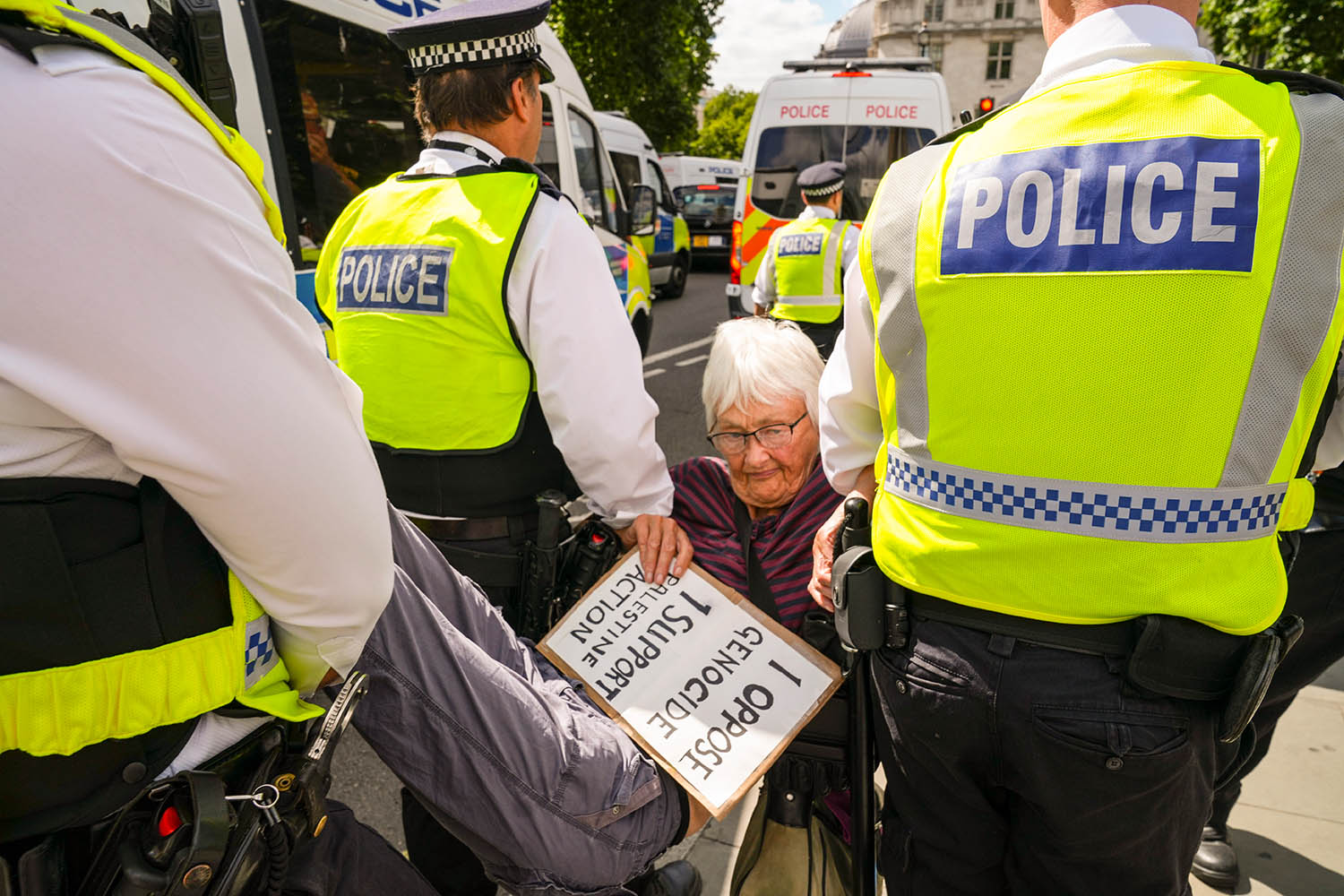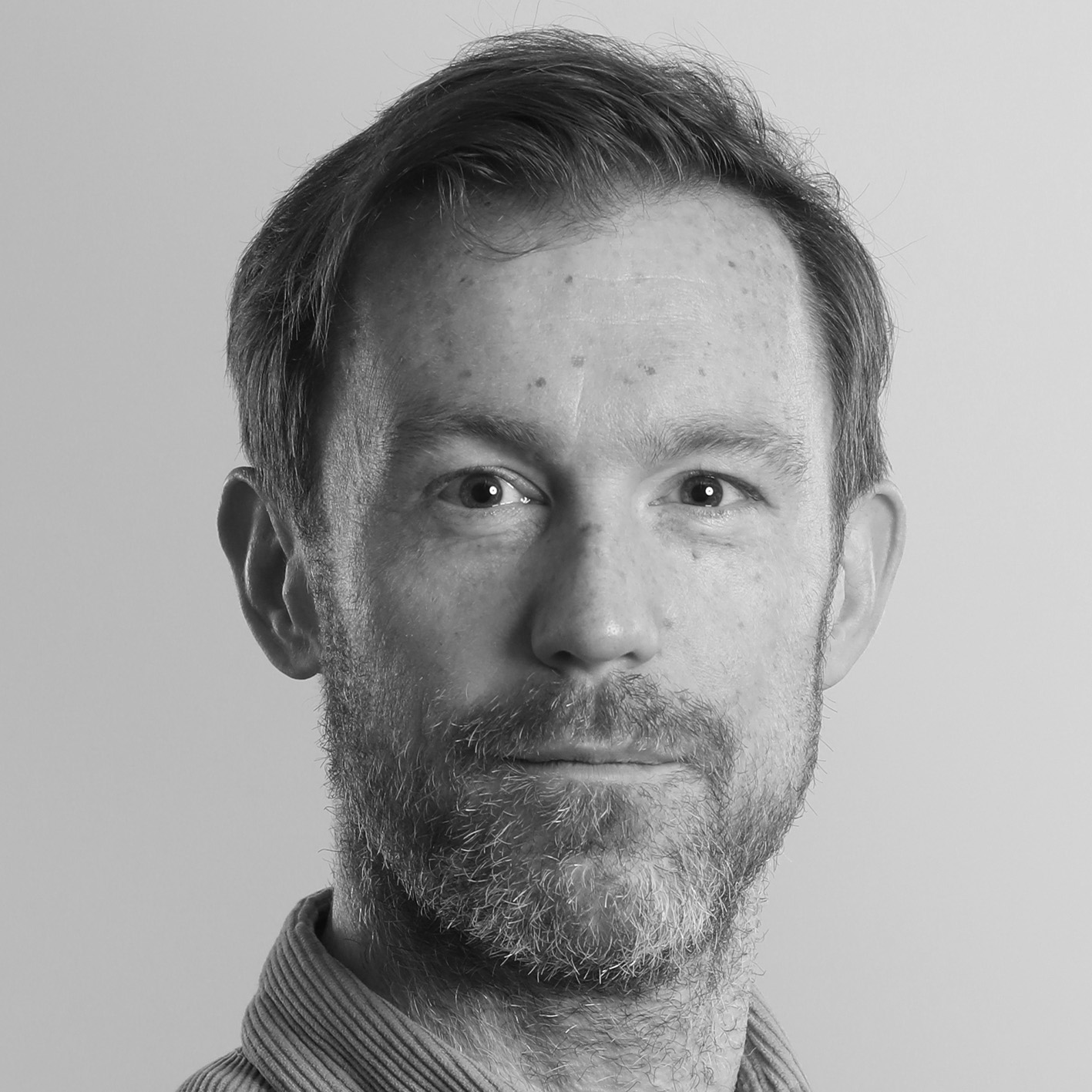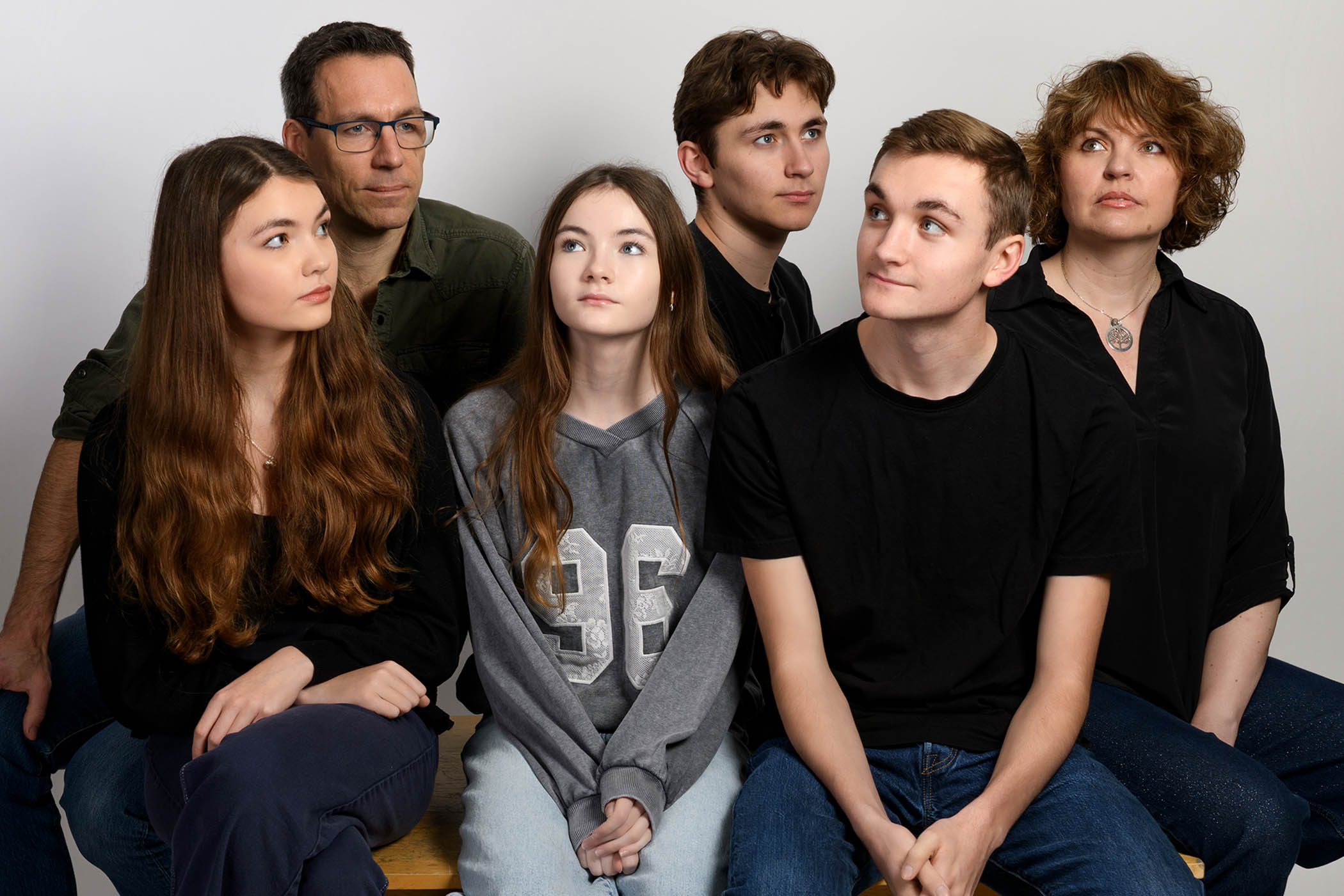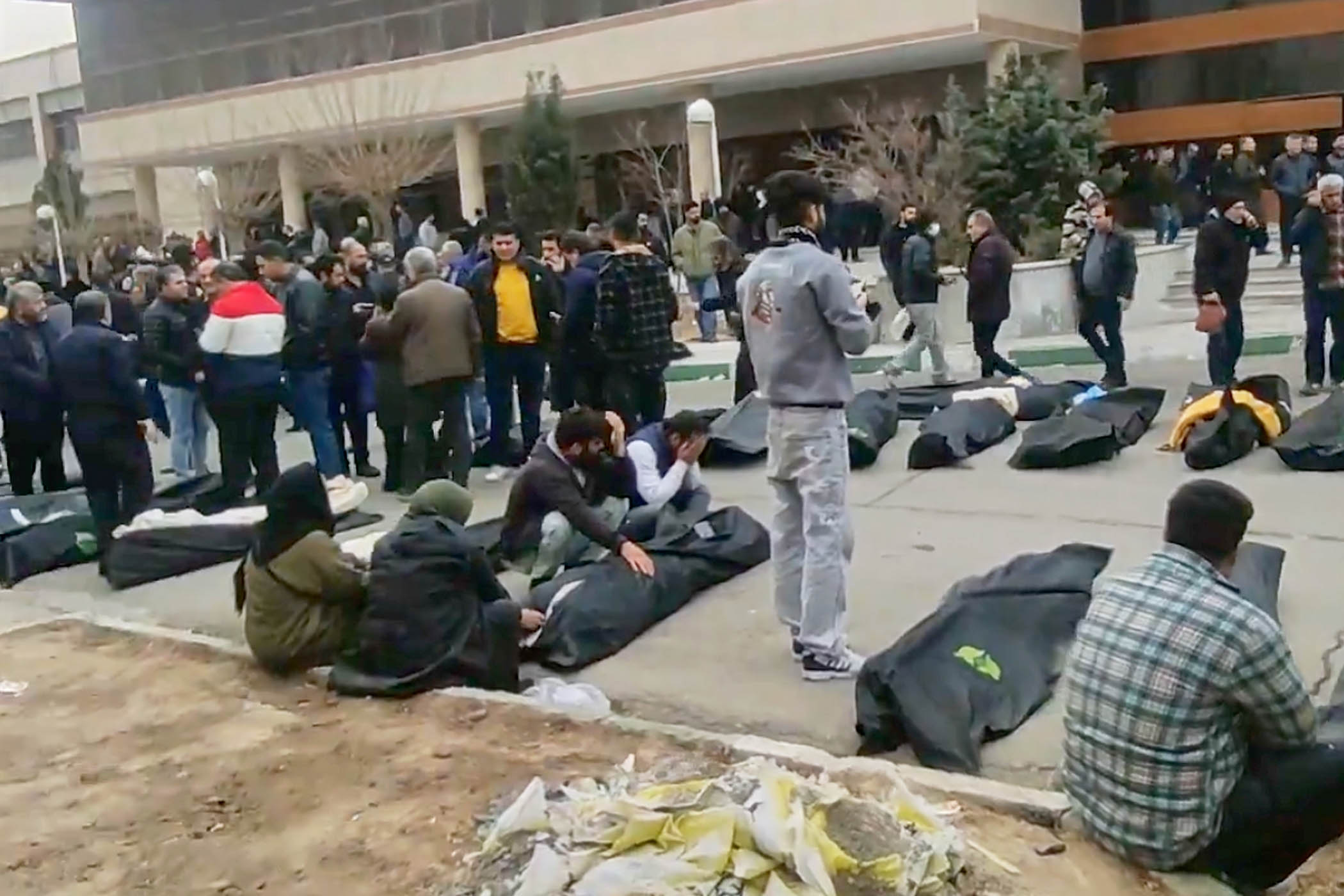One by one the police took them away. Some were carried, some walked. In every case, officers read them their rights, saying the words: “I am arresting you under the Terrorism Act.”
Many among the silent protesters in Parliament Square yesterday had to be asked if they were mobile enough to make the short walk to the police van.
At 1pm on the patchy grass of a tired lawn on the square, marker pens came out. Many people had already begun writing the offending sentence: “I support Palestine Action.” The chimes of Big Ben rang out as the hundreds gathered committed the offence: putting ink to cardboard.
Soon after, teams of officers from the Metropolitan police, who eschewed riot gear for the occasion, began to approach the protesters, all seated with their backs to the Palace of Westminster.
Some 600 to 700 protesters sat on the lawn, largely in silence. One by one the arrests began. A total of 466 protesters had been arrested by last night.
One young officer showed the offending placard to the man he was arresting, saying: “You were holding a sign saying ‘I oppose genocide, I support Palestine Action.’
“Now Palestine Action is a proscribed group under the Terrorism Act 2000, which means you have committed an offence under section 12 of that legislation, which is why I am arresting you today.”
The man said simply: “I am not a terrorist” as an angry voice from the crowd yelled: “You are arresting the conscience of this country.”
Related articles:
Among the arrests were the environmentalist Sir Jonathon Porritt and former Guantanamo Bay prisoner Moazzam Begg, who runs the advocacy group Cage, whose stated aim is challenging “war on terror-driven” state oppression.
John Woodcock, who as an adviser to the last government first called for Palestine Action to be banned, said it was an organised attempt to “subvert the law by overwhelming the criminal justice system”. “It can’t be allowed to succeed,” he added.
Newsletters
Choose the newsletters you want to receive
View more
For information about how The Observer protects your data, read our Privacy Policy
The scene was a far cry from the acts of terrorism that shook the capital 20 years ago on 7 July, and a far cry from the sledgehammers, crowbars and ram raids Palestine Action used in its attacks on Israeli weapons manufacturer Elbit systems and the red paint in the now infamous raid on RAF Brize Norton in June.
Among their number were nurses, doctors, architects and teachers – most retired and many of them veterans of causes including Extinction Rebellion.
Others were new. Hannah Collison, a GP receptionist, said that, like many, she had been on national marches and demonstrations over the past 22 months.
“I’m here because I oppose genocide,” she said, adding that she felt the government was not doing enough to stop the Israeli bombardment of Gaza and the starvation of the population on the Strip.
“It’s ludicrous to call us terrorists,” she said. “If that’s what needs to happen today to get this government to act, then I’m prepared for that to happen.”
One younger protester, who appeared to be in her 30s, was visibly shaking as she awaited arrest. Lou, a camera operator in film and television, said she had never been part of a direct action protest or arrested. On her arm she had written the number for a solicitor.
She said she was aware the arrest could affect her future employment and her ability to travel, adding: “I think it’s dangerous to use the word terrorism this way.”
The enforcement is also causing concerns among the rank and file, who yesterday faced a barrage of questions over their conduct, with protesters chanting: “Shame on you” and calling on them to resign.
One protester held a photograph of the skeletal image of four-year-old Razan Abu Zaher from Gaza who died from complications of malnutrition and showed it to officers manning the cordon.
A Police Federation source told The Observer: “Making Palestine Action a proscribed organisation may prove to be impractical in policing terms. It’s just another burden on officers.”
It is understood that as the Met scrambled to ensure London’s custody system would not be overwhelmed, consideration was given to having protesters share cells. In the end they were taken to makeshift processing centres outdoors, and those who gave verifiable identities were released on police bail on condition they do not attend similar demonstrations.
There was a scuffle as a small counter-protest of about half a dozen people stood in the middle of the crowd. They held up a handful of signs accusing Palestine Action of terrorising Britain and blaming Hamas for the atrocities in Gaza before being removed by police. A group in the crowd sang We Shall Overcome as the pro-Israel protestors were led away by officers.
Anthony Whiteson, 76, a retired IT analyst and grandfather, sat wearing a yarmulke and a star of David on a chain around his neck. “For me this is part of what it means to be Jewish – to take action against genocide when there’s a regime acting like the perpetrators of the Holocaust,” he said. He added that he had never been arrested before and that his wife of 50 years was at the nearby Palestine Solidarity Campaign march.
Asked how he felt about being labelled a terrorist, he said: “It’s just a joke. Yvette Cooper says she is a fan of the Suffragettes. I don’t think the Suffragettes would have thought much of her.”
The protests have had little effect on the home secretary’s resolve, however. Cooper doubled down yesterday on her line, stressing that the proscription of the group is “not about Palestine” nor about protest itself.
Last night Cooper said: “Palestine Action was proscribed based on strong security advice following serious attacks the group has committed, involving violence, significant injuries and extensive criminal damage.
“Many people may not yet know the reality of this organisation, but the assessments are very clear - this is not a non-violent organisation. UK national security and public safety must always be our top priority.”
However, the arrests for supporting Palestine Action, which yesterday surpassed the total for terrorism arrests for the whole of 2024, appear to be affecting some in Parliament.
One Labour backbencher who had voted in favour of the proscription order said yesterday: “This is clearly not what the legislation was designed for. We were told the security apparatus had requested this, and we do in the end need to trust that they have information we’re not privy to that supports this. I trust it was that urgent.”
‘We’ve reached a point where we are supposed to believe rights defenders are terrorists’
‘We’ve reached a point where we are supposed to believe rights defenders are terrorists’
Rajan Naidu, 74
He added that it now seemed that a more appropriate form of legislation needed to be developed to deal with direct action groups committing serious acts of vandalism and large-scale criminal damage.
Some among the crowd were seasoned demonstrators. Rajan Naidu, 74, a lifelong social justice activist, was previously involved in a stunt at Stonehenge with Just Stop Oil.
“We have reached a point where the terrorists are called peacemakers killing in self-defence and we are supposed to believe the human rights defenders are terrorists,” he said.
Tim Crosland from Defend Our Juries, which organised the protest, said yesterday: “The context is so horrific it doesn’t seem right to say it’s gone well – but we had more people than we expected. We are not going away. ”
Photograph by Antonio Olmos/The Observer



